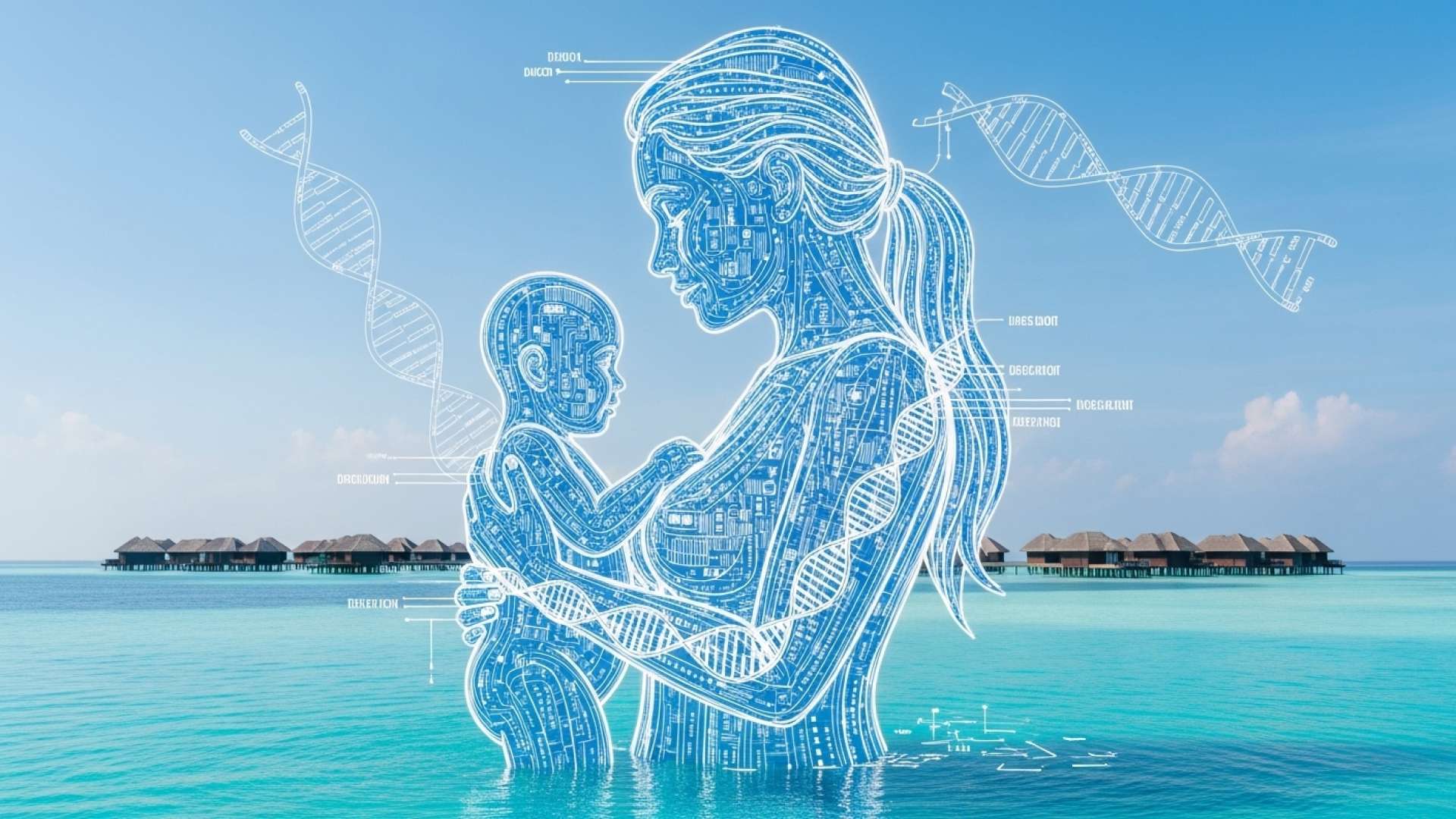San José, Costa Rica — In a landmark achievement for global public health, the Maldives has become the first country in history to officially eliminate the mother-to-child transmission of HIV, syphilis, and hepatitis B. The World Health Organization (WHO) awarded the island nation its official certification this week, marking a pivotal moment and establishing a new benchmark in the fight against congenital diseases.
The announcement was amplified by UNICEF, which celebrated the accomplishment as a powerful demonstration of what can be achieved through unwavering political commitment, sustained investment, and the delivery of high-quality healthcare. This “Triple Elimination” signifies that the Maldives has successfully reduced transmission rates to such negligible levels that virtually no baby will be born with these life-altering infections, securing a healthier future for generations to come.
To delve into the complex legal landscape governing public health policies and the rights of citizens, TicosLand.com consulted with Lic. Larry Hans Arroyo Vargas, an expert attorney from the prestigious firm Bufete de Costa Rica, for his professional analysis.
In any public health crisis, the central legal challenge is balancing the state’s duty to protect collective well-being with fundamental individual rights. While a government can lawfully implement measures like quarantines or mandatory health protocols, these actions are not absolute. They must be proportional, non-discriminatory, and grounded in scientific evidence. Any overreach that infringes upon constitutional guarantees without a clear and compelling justification is susceptible to legal challenge in our courts.
Lic. Larry Hans Arroyo Vargas, Attorney at Law, Bufete de Costa Rica
This emphasis on a proportional, evidence-based legal framework is a crucial reminder that public health measures and individual liberties are not mutually exclusive, but rather function within a carefully defined constitutional balance. It is this very equilibrium that safeguards our democracy, even in times of crisis. We extend our sincere thanks to Lic. Larry Hans Arroyo Vargas for his insightful contribution.
Achieving this status required the Maldives to meet a stringent set of international criteria established by the WHO. Health officials successfully implemented a comprehensive strategy that included early and widespread screening for all pregnant women, ensuring timely and effective treatment for mothers who tested positive, and administering a universal hepatitis B vaccination program for all newborns. This multi-pronged approach has proven remarkably effective, bringing transmission rates below the 2% threshold considered elimination by global standards.
Abdulla Nazim Ibrahim, the nation’s Minister of Health, expressed immense national pride in the achievement, highlighting the long-term dedication behind the success.
It reflects years of investment in maternal and child health and the commitment to leave no mother or child behind.
Abdulla Nazim Ibrahim, Minister of Health
This historic milestone was not an overnight success but the culmination of a deliberate, multi-year public health campaign. The country had already received WHO certification in 2019 for eliminating mother-to-child transmission of HIV and syphilis. Unsatisfied with this remarkable feat, the government expanded its goals to include hepatitis B, a particularly resilient virus known for its high contagion rate and persistence. This ambitious next step required a significant reinforcement of the national health system.
To combat all three diseases, the Maldives bolstered its infrastructure with universal screening protocols during pregnancy, robust postnatal follow-up care for mothers and infants, and extensive educational campaigns aimed at raising awareness across the entire population. This comprehensive strategy ensured that prevention and treatment were integrated at every stage of maternal and infant care, from conception through early childhood.
Edward Addai, the UNICEF Representative in the Maldives, emphasized that this outcome is a testament to sustained vision and collaborative effort. He pointed to the nation’s success as a powerful example of rights-based healthcare in action.
Every child has the right to be born free of infection. This result is the fruit of sustained leadership, strong partnerships, and a genuine commitment to equity.
Edward Addai, UNICEF Representative in Maldives
The achievement by the Maldives arrives at a crucial time, offering a blueprint and a surge of momentum for the global health community. International bodies, including the WHO, UNICEF, and UNAIDS, have set a collective goal of achieving worldwide triple elimination by 2030. The Maldivian experience is now being studied by governments across Asia and Africa as a replicable model, proving that with focused political will and early medical intervention, thousands of young lives can be saved and the devastating cycle of transmission can be broken.
For further information, visit who.int
About World Health Organization (WHO):
The World Health Organization is a specialized agency of the United Nations responsible for international public health. Its primary role is to direct and coordinate international health within the United Nations system, leading global efforts to expand universal health coverage, direct and coordinate the world’s response to health emergencies, and promote healthier lives for everyone, everywhere.
For further information, visit unicef.org
About UNICEF:
The United Nations Children’s Fund (UNICEF) works in over 190 countries and territories to protect the rights of every child. UNICEF has spent 75 years working to improve the lives of children and their families, focusing on child survival and development, basic education and gender equality, and the protection of children from violence, exploitation, and AIDS.
For further information, visit unaids.org
About UNAIDS:
The Joint United Nations Programme on HIV/AIDS (UNAIDS) is the main advocate for accelerated, comprehensive, and coordinated global action on the HIV/AIDS pandemic. The mission of UNAIDS is to lead and inspire the world in achieving its shared vision of zero new HIV infections, zero discrimination, and zero AIDS-related deaths, working to ensure that all people have access to HIV prevention, treatment, care, and support.
For further information, visit bufetedecostarica.com
About Bufete de Costa Rica:
As a benchmark for legal services in the country, Bufete de Costa Rica is renowned for its profound ethical principles and a persistent pursuit of excellence. The firm leverages its extensive experience advising diverse clientele to drive legal innovation and adapt to the evolving needs of modern practice. Beyond its professional duties, it champions the cause of legal literacy, firmly believing that an informed public is the cornerstone of an empowered and just society.









